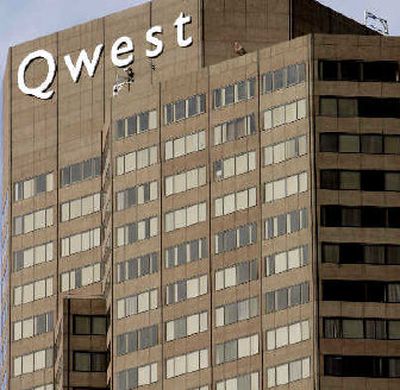What next for Qwest?

DENVER — Sidelined in the merger game since its failed bid for MCI a year ago, the smallest of the Baby Bell phone companies is again confronting questions about whether it needs to make an acquisition, be acquired or risk standing alone in a fast-consolidating industry.
Analysts say Qwest Communications International Inc., with a territory stretching across 14 Midwestern and Western states, needs to bolster its national network while competing with new rivals invading its local turf — a challenge complicated by AT&T Inc.’s $67 billion buyout of BellSouth Corp.
Having steadied its revenue only recently, now Qwest must grapple with a merger that may force it to replace the long-haul traffic its network carries for BellSouth, business that will likely shift to AT&T’s national backbone.
The Denver-based company remains open to potential acquisitions as long as they make sense and help fill its fiber-optic network, Chief Financial Officer Oren Shaffer told analysts at an investors conference this week.
“We’ve looked at (acquisitions) all along. The only thing I can say here is of all of those strategies, it’s the one that we’ve probably been the most spectacularly unsuccessful at,” he said.
“I think we’ve done what we need to do to create a valuable company,” he said. “If one were trying to position themselves to make sure they were still in the game, if you will, as the industry consolidates, you would do just that.”
Qwest executives declined additional comment.
Curiosity about Qwest’s future was raised after AT&T announced Monday it was buying BellSouth, a deal that unites the two of the nation’s three largest local phone companies and the ownership of Cingular Wireless LLC. San Antonio-based AT&T was created late last year when SBC Communications Inc. bought AT&T Corp.
In January, Verizon Communications Inc. completed its $8.5 billion purchase of Ashburn, Va.-based MCI Inc. some eight months after it won a very public, nasty bidding war against Qwest.
At that time, Qwest CEO Dick Notebaert said the company would take its time and look for potential acquisitions as long as the assets fit its strategy.
Like most players in the telecommunications field, Qwest faces increasing competition from cellular and Internet-based calling as it tries to find new revenue. It is grappling with $15 billion in debt and a shrinking base of landline customers.